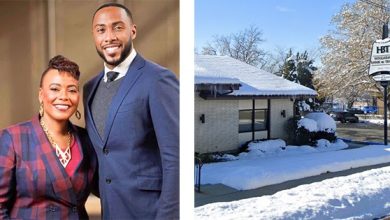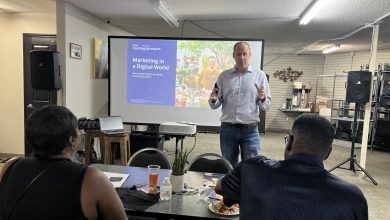Black wealth infrastructure as a safety net

By LaToya B. Parker and Dedrick Asante-Muhammad

In August 2025, the Black unemployment rate surged to 7.5 percent—about twice the rate for White workers (3.7 percent) and well above the national average of 4.3 percent. Washington, D.C., and Michigan had the highest Black unemployment rates in the second quarter of 2025, at 10.3 percent and 10 percent, respectively (EPI). These numbers are not mere statistics—they signal families set back, dreams delayed, and communities left more vulnerable each time the economy falters. For Black Americans, downturns hit harder and recovery is slower. In these moments, only true wealth infrastructure—assets, homeownership, savings and entrepreneurship—can anchor families and offer a genuine path forward.
As federal layoffs accelerate and key industries shed workers, families without assets face a familiar crisis: unemployment that threatens not just monthly bills, but also housing stability and children’s futures. Black workers bear the heaviest burden, losing jobs first and finding new ones last each time the economy turns. One model stands out: the Family Self-Sufficiency (FSS) program, HUD’s proven approach for helping low-income families turn rental assistance into long-term wealth. As participants’ incomes rise, so do their savings—thanks to an innovative escrow account that captures what otherwise would have gone toward higher rent. By graduation, many families have enough for a down payment, tuition or even a small business venture. With $141 million in federal appropriations for 2025, FSS is a rare example of scalable, bipartisan anti-poverty policy—yet it faces perennial funding threats that put its gains at risk (HUD; Bipartisan Policy Center).
Asset-building programs like FSS, which Congress has protected even as recent budgets have targeted them for cuts, are essential to help families weather unemployment, avoid eviction and create security that income alone cannot guarantee. In the wake of these disruptions, Black wealth infrastructure isn’t just important; it is essential for community and generational resilience. The effects are visible in lives transformed. Take Marisabel, who entered the FSS Homeownership Track in Massachusetts as a renter struggling to get ahead. Through steady work, saving and coaching, she bought her first home—turning uncertainty into lasting security for her family. Likewise, Tanisha Durrett, a single mother, became the proud owner of a bookkeeping business after completing FSS, crediting the program’s financial coaching for her leap into entrepreneurship (New Albany Housing Authority).

Credit: Courtesy photos
However, even diligent saving can’t close the racial wealth gap alone. The pathways to prosperity increasingly run through new engines of economic growth—like clean energy, a $23 trillion market by 2030, expected to generate over a million jobs in the coming years. Yet Black Americans currently hold only 8 percent of jobs in the sector and own less than 1 percent of its companies. Even as industry leaders clamor to hire—“We need to hire 500,000 people in the next decade,” says Jason Grumet of the American Clean Power Association (Washington Informer)—systemic barriers persist.
Chief among these obstacles is unpaid training. As CEO Carla Walker-Miller notes, “If you want to be trained, pay us… We need to be paid while we’re trained” (Washington Informer). Without paid opportunities, participation remains limited—no matter how dire the labor shortage. For those who do break in, union positions offer real security: 8–19 percent higher wages and strong benefits (Climate Power Clean Energy Jobs Report). Most new roles require no college degree, making these jobs especially valuable for displaced workers.
Business ownership—vital for family and community wealth—remains out of reach for many. Fewer than a quarter of Black-owned clean energy companies get bank financing, compared to nearly half of white-owned firms. This persistent financing gap prevents Black entrepreneurs from scaling up and sharing new opportunities.
Programs like FSS, the Dearfield Fund for Black Wealth, and Washington, D.C.’s Black Homeownership Fund reveal what’s possible. These efforts turn passive hope into asset-building action, helping families achieve homeownership, launch businesses and stabilize entire neighborhoods.
To create lasting resilience, we must do three things: Expand asset-building programs like FSS and down payment support nationwide so every hardworking family can own a home and build security. Open pathways to emerging industries with paid training, union jobs, and fair business opportunities. Reform lending and homeownership systems with targeted community investments and strict anti-discrimination rules.
If policymakers act with purpose—grounded in evidence—Black families will not only weather economic storms, but thrive: launching businesses, sending children to college and building communities with enduring strength. True wealth infrastructure is more than a safety net—it’s the foundation for real and lasting mobility. There is no Black mobility without Black sustainability.
The opinions expressed in this commentary are those of the writer and not necessarily those of the AFRO.




